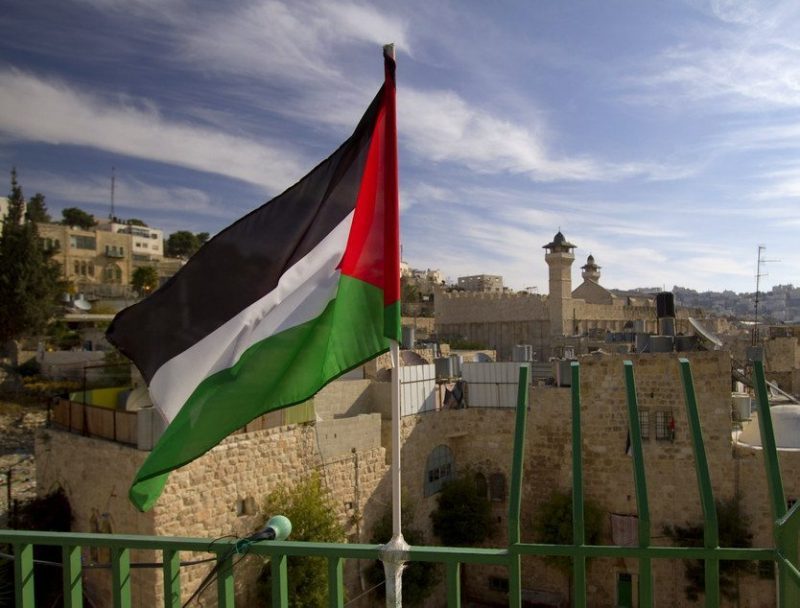Whilst the Nakba is associated with a specific date, 15 May 1948, it has remained ongoing as the illegal occupation continues.
Qatar’s Assistant Foreign Minister for Regional Affairs Mohammed Al Khulaifi has discussed the latest developments in Palestine with the EU’s Special Representative for the Middle East Peace Process Sven Koopmans.
During the meeting, which took place in Doha on Sunday, the officials tapped into the Gulf state’s efforts in the besieged Gaza strip and “advancing the peace process in the Middle East.”
Qatar has long refused to normalise with Israel as long as it continues its illegal occupation of Palestine and carrying out its human rights violations against Palestinians.
The Gulf state has repeatedly expressed its commitment to the 2002 Arab Peace Initiative. Adopted by the Gulf Cooperation Council (GCC), the initiative states that member countries shall refrain from normalising with Israel until it fully withdraws from lands occupied in 1967.
Responding to the ongoing siege of Gaza, Qatar has provided the Palestinian city with humanitarian aid to help meet the needs of the city’s 2.1 million population. Last year, Qatar granted Gaza with $360 million, an amount that was disbursed throughout 2021.
In response to the destruction the 11-day Israeli bombardment in Gaza in May 2021, the Amir Sheikh Tamim bin Hamad Al Thani allocated $500 million worth of aid to rebuild the city.
Qatar and Egypt helped broker a ceasefire at the time that ended the attacks on Gaza, in which Israel killed at least 260 Palestinians, including 66 children.
Gaza became known as the world’s largest open-air prison due to the air, land and sea blockade imposed by Israel in 2007.
The Nakba
The meeting came on the same day Palestinians worldwide commemorated the 74th anniversary of the Nakba, translating to “the catastrophe” in Arabic. The Nakba is used to describe the mass exodus of Palestinians.
Between 1947 until 1949, at least 750,000 Palestinian from a 1.9 million native population were forced out of their own land by Zionists militias who later established Israel.
At least 450 towns and villages were depopulated.
There are up to 5.6 million Palestinian refugees, with at least 28.4% scattered in 58 UNRWA-run camps in Jordan, Syria, Lebanon, the West Bank and Gaza.
Israeli forces ethnically cleansed and destroyed at least 530 villages and cities whilst killing 15,000 Palestinians, according to Al Jazeera. More than 70 massacres have been committed by the Zionist state.
This year’s anniversary of the Nakba comes days after Israeli forces killed prominent Al Jazeera journalist Shireen Abu Akleh, who was known as the voice of Palestinians.
The Qatar-based broadcaster has shared a news report by Abu Akleh that she filmed two days before she was killed, explaining the Nakba.
Qatar’s Assistant Foreign Minister Lolwah Al Khater tweeted the video on Sunday, detailing 74 years of human rights violations and assassinations of journalists.
Whilst the Nakba is associated with a specific date, 15 May 1948, it has remained ongoing as the illegal occupation continues. More Palestinians are being forced to demolish their own homes.
The forced dispossession of Palestinians was brought to the public attention last year when more families in Sheikh Jarrah and Silwan were threatened to be stripped from their homes.
Sheikh Jarrah homes were built in accordance with the UN refugee agency and Jordan. Settler organisations later filed a lawsuit in 1972 alleging that the land on which Sheikh Jarrah stands belongs to them.
Between 2009 and 2022, Israel has demolished at least 8,413 Palestinian structures, as figures shared by the UN Office for the Coordination of Humanitarian Affairs (OCHA) showed.
At least 12,491 people have been displaced during the reported period.
The number of displacements and targeted structures in the first two months of this year is approximately the same as 2021’s average.







